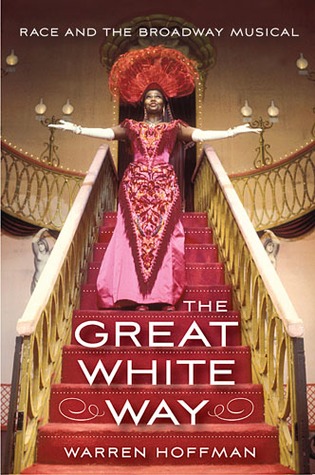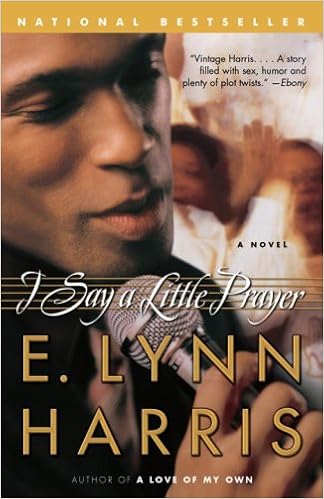Some news...
Our next meeting won't be until January 19th, when we'll be discussing E. Lynn Harris' I Say a Little Prayer. Copies have already begun arriving, (sadly, they did not get here in time for our discussion Tuesday.) We have copies on hold for AAL at the 2nd floor desk; call us at 847-448-8620 or just stop by.
I often run across books which would make great discussions, but there just aren't enough copies in the library system to do it. Here are a few recent titles I highly recommend...
Where everybody looks like me : at the crossroads of America's Black colleges and culture
In this comprehensive history of the Illinois Chapter of the Black Panther Party (ILBPP), Chicago native Jakobi Williams demonstrates that the city's Black Power movement was both a response to and an extension of the city's civil rights movement. Williams focuses on the life and violent death of charismatic leader Fred Hampton, who served as president of the NAACP Youth Council and continued to pursue a civil rights agenda when he became chairman of the revolutionary Chicago-based Black Panther Party. Framing the story of Hampton and the ILBPP as a social and political history and using, for the first time, sealed secret police files in Chicago and interviews conducted with often reticent former members of the ILBPP, Williams explores how Hampton helped develop racial coalitions between the ILBPP and other local activists and organizations.Williams also recounts the history of the original Rainbow Coalition, an alliance of working class blacks, Latinos, and white Southerners, to show how the Panthers worked to create an anti-racist, anti-class coalition to fight urban renewal, political corruption, and police brutality.
 In this timely new book, Tim Wise explores how Barack Obama's emergence
as a political force is taking the race debate to new levels. According
to Wise, for many white people, Obama's rise signifies the end of racism
as a pervasive social force; they point to Obama not only as a
validation of the American ideology that anyone can make it if they work
hard, but also as an example of how institutional barriers against
people of color have all but vanished. But is this true? And does a
reinforced white belief in color-blind meritocracy potentially make it
harder to address ongoing institutional racism? After all, in housing,
employment, the justice system, and education, the evidence is clear:
white privilege and discrimination against people of color are still
operative and actively thwarting opportunities, despite the success of
individuals like Obama. Is black success making it harder for whites to
see the problem of racism, thereby further straining race relations, or
will it challenge anti-black stereotypes to such an extent that racism
will diminish and race relations improve?
In this timely new book, Tim Wise explores how Barack Obama's emergence
as a political force is taking the race debate to new levels. According
to Wise, for many white people, Obama's rise signifies the end of racism
as a pervasive social force; they point to Obama not only as a
validation of the American ideology that anyone can make it if they work
hard, but also as an example of how institutional barriers against
people of color have all but vanished. But is this true? And does a
reinforced white belief in color-blind meritocracy potentially make it
harder to address ongoing institutional racism? After all, in housing,
employment, the justice system, and education, the evidence is clear:
white privilege and discrimination against people of color are still
operative and actively thwarting opportunities, despite the success of
individuals like Obama. Is black success making it harder for whites to
see the problem of racism, thereby further straining race relations, or
will it challenge anti-black stereotypes to such an extent that racism
will diminish and race relations improve?  Broadway musicals are one of America's most beloved art forms and play
to millions of people each year. But what do these shows, which are
often thought to be just frothy entertainment, really have to say about
our country and who we are as a nation? The Great White Way reveals the racial politics, content, and subtexts that have
haunted musicals from Show Boat (1927) to
The Scottsboro Boys (2011). Presented chronologically, The Great White Way shows how
perceptions of race altered over time and how musicals dealt with those
changes. New
archival research on the creators who produced and wrote these shows,
including Leonard Bernstein, Jerome Robbins, Stephen Sondheim, and
Edward Kleban, will have theater fans rethinking
how they view this popular American entertainment.
Broadway musicals are one of America's most beloved art forms and play
to millions of people each year. But what do these shows, which are
often thought to be just frothy entertainment, really have to say about
our country and who we are as a nation? The Great White Way reveals the racial politics, content, and subtexts that have
haunted musicals from Show Boat (1927) to
The Scottsboro Boys (2011). Presented chronologically, The Great White Way shows how
perceptions of race altered over time and how musicals dealt with those
changes. New
archival research on the creators who produced and wrote these shows,
including Leonard Bernstein, Jerome Robbins, Stephen Sondheim, and
Edward Kleban, will have theater fans rethinking
how they view this popular American entertainment.

Nice!
ReplyDeleteLAUGH, SCREAM AND CRY ON DNB STORIES
Thank you for sharing and updating!
ReplyDeleteI will come to look at this issue and look forward to!
If you are interested to learn more, you can go to our website:www.rsgoldfast.com
If you want to get those better equipment in a short time, then MMOWTS may be a good choice for you. There are various discounted Diablo 2 Resurrected Items for sale, which can help new and old players speed up the process of the game.
ReplyDelete